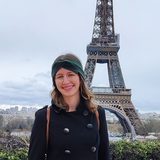Diese Seite ist erreichbar unter:
https://abi.de/studium/studienbereiche/sprach-kulturwissenschaften/sprach-literaturwissenschaften-dolmetschen-und-uebersetzen/translation
Wir möchten unser Online-Angebot gut auf deine Bedürfnisse anpassen. Zu diesem Zweck setzen wir sogenannte Cookies ein. Entscheide bitte, welche Cookies du zulassen möchtest. Die Arten von Cookies werden nachfolgend beschrieben. Bitte beachte: Je nachdem, welche Cookies du zulässt oder nicht, stehen dir anschließend womöglich nicht mehr alle Funktionen der Website zur Verfügung. Mehr Informationen dazu findest du in unseren Datenschutzhinweisen
Einige unserer Cookies sind technisch bedingt – ohne sie würde unsere Website nicht richtig funktionieren. Sie sind unter anderem erforderlich für die portalweite Suchfunktion, das Anzeigen von Videoinhalten und deine Datenschutzeinstellungen.
Diese Cookies ermöglichen es uns, anonymisierte Daten zu deinem Besuch für Statistiken und die Analyse unserer Website zu sammeln. Wenn du diese Cookies zulässt, hilfst du uns dabei, die Website für die zukünftige Nutzung zu optimieren.
Breathing life into words, connecting cultures, overcoming misunderstandings – Jasmin Angl (25) is studying German, English, and French toward a master degree in translation at Johannes Gutenberg-Universität Mainz in Germersheim.


Jasmin Angl enters the cafeteria. Walking through the rows of tables, she hears a babble of Spanish, Greek, Polish, English, and German. “The university’s campus is known in the translation business world-wide,” she says. “This is why not only Germans come here to study but people from many countries. Every day you talk to people in all sorts of languages.”

Most have two languages, but I know some who focus on one, or study more than two.
Jasmin Angl, Master-Studentin Translation
Jasmin Angl learned the fundamentals of translating while pursuing a bachelor degree in translation. In addition to translation theory and translation science, her schedule included language and cultural sciences. “We learn the craft of translating. You can employ diverse strategies to make appropriate, reasonable translation decisions,” she sums up. “Familiarising yourself with the way of life and culture of the people in countries where the language you study is spoken is equally important.”
Another key element of good translation is expert knowledge of the topics addressed in the texts. These may be contracts or other legal texts, subtitles or synchronisations for movies, literature, media texts, studies, or leaflets for medicine packages. Additionally, Interpreting is part of the elective area in the bachelor programme and a specialist course in the master programme.
Currently in the third semester, Jasmin Angl has chosen to specialise in technical translation, language management, and artificial intelligence. “I find the use of AI in the translation industry fascinating,” she shares. “The goal is to make the best possible use of the machine and work with it. This results in new occupational areas, for example, correcting the machine’s output.”
At the beginning of her studies, Jasmin Angl had to make a few fundamental decisions, for example, the languages she wanted to study and her primary language, which, at Johannes Gutenberg-Universität, does not have to be German. The students decide how many foreign languages they study. “Most have two languages, but I know some who focus on one, or study more than two,” Jasmin Angl reports.
It was her fascination with languages that brought the master’s student to study. “I loved learning languages at school and was good at it,” she says. “I wanted to study languages in-depth and to see the world.” She combined her wanderlust with her studies: A semester in Dijon allowed her to improve her language skills and to familiarize herself with the countries and people. To prepare for her professional career, Jasmin Angl also completed internships, for example, on the translation services team at the German Pension Insurance (Deutsche Rentenversicherung).
Going forward, she sees herself in an employed position or freelancing as a translator or a project manager. She is convinced that “because texts need to be translated in so many industries, qualified translators will always be in demand.”
The database of the Federal Employment Agency lists 22 study programmes related to translation: 12 bachelor and 10 master degree programmes, 8 for sign language. While some universities permit only one target language for translation studies, others offer a wide range. Master degree programmes allow students to specialise, for example, in media texts or media translation at Hildesheim University or literary translation at Friedrich Schiller University Jena.
Stand: 19.12.2024
Vielen Dank für dein Feedback zu dieser Seite! Deine Kritik oder dein Lob zu abi.de kannst du uns gerne auch ergänzend über „Kontakt“ mitteilen. Deine abi» Redaktion
Diese Seite ist erreichbar unter:
https://abi.de/studium/studienbereiche/sprach-kulturwissenschaften/sprach-literaturwissenschaften-dolmetschen-und-uebersetzen/translation